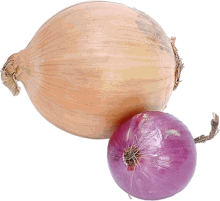High Cholesterol? The TOP 12 Non-Drug Strategies to Increase Your HDL Levels
by www.SixWise.com
Think you've heard it all when it comes to cholesterol? Well,
even the most cholesterol-savvy among us may be in for a surprise
... it turns out that perhaps the most important aspect
has to do with making sure you have enough of it -- the good
kind, that is.
Cholesterol, of course, is composed of two types: the good
"HDL" (high-density lipoprotein) cholesterol and
the bad "LDL" (low-density lipoprotein) variety.
Most Americans focus on reducing LDL cholesterol as a key
part of their treatment regimen. However, a new study found
that having too little good cholesterol is at least as damaging
when it comes to heart disease as having too much of the bad
kind, and it may even be more damaging.
"The public was first educated on total cholesterol,
and then the shift was on LDL cholesterol and keeping that
level down," said Dr. Christie Ballantyne, a professor
of medicine at Baylor College of Medicine. "HDL cholesterol
is at least as important as LDL cholesterol and may even be
more predictive of heart disease."
|

Increasing your HDL: Another benefit of exercise.
|
In fact, in people with heart disease,
the most common cholesterol problem is too little HDL.
That's because HDL cholesterol works to remove LDL cholesterol
from the arteries. "Even if their total cholesterol and
LDL cholesterol levels are normal, people with reduced levels
of HDL have an increased risk of early coronary artery disease,"
says Richard N. Fogoros, M.D.
When HDL levels are increased, a little goes a long way.
It's estimated that for every 1 mg/dl increase in HDL cholesterol,
there is a 2 percent to 4 percent decrease in your risk of
coronary heart disease.
12 Strategies to Increase Your HDL
If your HDL levels are lacking, here are some key ways to
boost them.
Exercise: Aerobic exercise, the kind that raises your
heart rate for an extended period of time (say 20 or 30 minutes),
can increase your HDL if done regularly. Examples include
jogging, biking, fast walking, aerobics, etc.
Maintain a healthy weight: Being overweight or obese
can increase your LDL cholesterol levels while reducing your
HDL. Losing weight can help to increase HDL.
|

Doughnuts, along with other foods that contain trans
fats, are some of the worst foods you could eat: they
lower your good cholesterol and increase the bad.
|
Don't eat trans fats: Trans fats are an unhealthy
type of fat found in margarine, shortening, fried foods like
french fries and fried chicken, doughnuts, cookies, pastries
and crackers. Anything that contains hydrogenated or partially
hydrogenated oil also contains them.
These artery-clogging fats are known to increase LDL cholesterol
and decrease HDL. Avoiding foods that contain them (you have
to be diligent in reading labels to do so, as many processed
products contain them) can help to raise your HDL levels significantly.
Eat more monounsaturated fats: Increasing foods that
contain these healthy fats -- olive oil, peanut butter, avocados,
etc. -- can raise your HDL levels without harming your total
cholesterol.
Eat soluble fiber: Fiber
can increase your HDL cholesterol while decreasing the
LDL. It's found in fruits like apples, oranges, pears, peaches,
berries and grapes, seeds and nuts, oat bran, dried beans,
oatmeal, barley, rye and vegetables. At least two servings
a day is ideal.
Avoid too many processed carbs: Too many refined carbs from
white sugar, flour, potatoes, etc. causes your blood sugar
to rise. This has been linked to decreases in HDL levels.
|

Like onions? Half of one a day can raise your HDL by
30 percent.
|
Pile on the onions: Research suggests that half of
a raw onion a day may raise HDL levels by as much as 30 percent.
Drinking: One
or two alcoholic drinks a day may help to increase HDL
levels. An ideal choice may be red wine: "There are antioxidants
contained in red wines such as cabernet sauvignon, merlot
and pinot noir, that help slow down the oxidation of HDL and
LDL cholesterol," says Vincent Rifici of the Robert Wood
Johnson Medical School. However, go over one or two drinks
and you'll do more damage than good. Some people may experience
problems with lesser amounts of alcohol as well.
Don't eliminate all fat from your diet: Just like
too much fat in your diet can cause problems, too little fat
in your diet can lead to a deficiency of essential fatty acids.
It has also been linked to significant reductions in HDL cholesterol.
For best results, eat a variety of healthy fats, like monounsaturated
fats, and avoid the bad ones, like trans fats.
Quit smoking: This will result in an increase in HDL
levels.
Consider taking niacin: According to the National
Cholesterol Education Program (NCEP), niacin (vitamin B3)
is an important tool to normalize cholesterol. Several studies
have found that this vitamin can increase HDL by 30 percent
while lowering total cholesterol by 10 percent to 25 percent.
Get lots of omega-3: This essential fatty acid, found
in fish, fish
oil, flaxseed and walnuts, has been found to increase
HDL cholesterol.
Recommended Reading
How
Many Insect Parts and Rodent Hairs are Allowed in Your Food?
The
Major Health Benefits of Going Barefoot (Really!)
Sources
Health
Orbit June 29, 2005
About.com:
Increasing the Good Cholesterol
Raise
HDL (Good) Cholesterol
Medicine
Net: HDL Cholesterol
What
You Can do to Raise Your Good Cholesterol